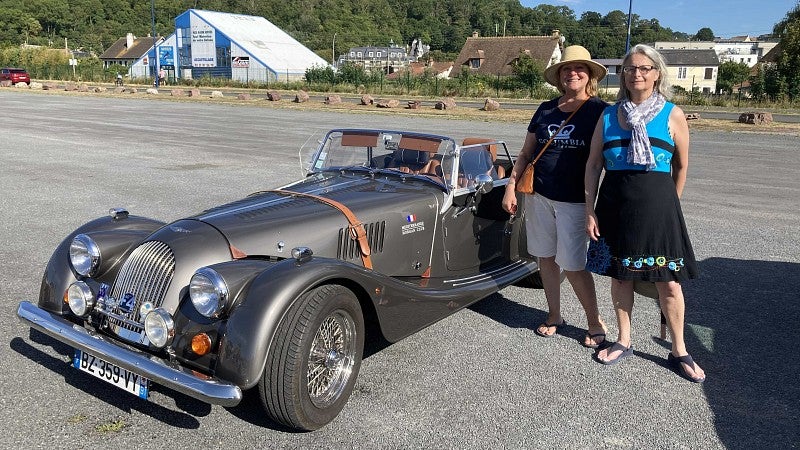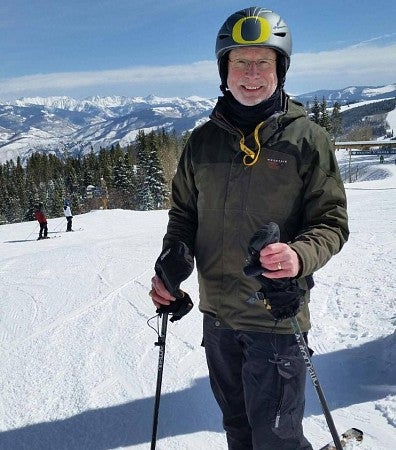
Letters to the Editor: Travel and Running are Keys to Better Living
Responding to an OQ survey, readers divulge the ingredients to their secret sauce
July 12, 2023
3 min readSpin the Globe and Go
Travel abroad and be a gypsy. Teaching high school as a special educator has more stressors than ever. Last summer, I truly got away by visiting a friend who lives in France for a month. We drove to the seaside village of Cabourg on the Cote Fleurie, stayed in Normandy with her family. Took day trips to Rouen and left from Paris. It was such a departure and worthy splurge. I plan to go somewhere cool every year for my sanity. This December, I’m meeting up with friends from Sarajevo, Lithuania and Detroit in: Egypt.
Jane Lake, MS ’11 (special education)
Rockaway Park, New York
How Running Saved My Life
Three months after achieving my first summit of Mount Hood, I learned that coronary heart disease had made me a walking “time bomb.”
On the morning of September 4, 2004, I completed an eighteen-mile marathon training run in preparation to run the Portland Marathon. During a shower after my run, I experienced unusually rapid heart palpitations. When the sensation reached my jaw—a telltale sign of a heart attack—my wife took me to the ER.
My initial EKG revealed a heart attack. The interventional cardiologist immediately sent me to the emergency room and performed a heart catheterization, which showed blockage in three of four coronary arteries. The next thing I knew I was being flown to the Johns Hopkins Hospital for further evaluation and probable coronary artery bypass surgery. I underwent a triple bypass the following day.

As my cardiologist explained, my running regimen had literally created a “supplemental” cardiovascular system. It allowed me to continue running, climb Mount Hood, and enjoy a good life, though admittedly a life ignorant of my heart disease. I realize now that I would not have survived my heart attack had I not been an active runner.
I am writing this article to tell others of my experience and, perhaps, to prevent them from suffering the same fate. All my controllable risk factors for heart disease were well within acceptable limits. But here was one thing I could not control, and that was heredity. My father had undergone bypass surgery at age seventy-four, so I knew there was a family history. But I could not believe I’d be susceptible to a heart attack at age fifty-seven.
If my experience with heart disease has even created any concern in your mind, I highly recommend that you review your risk factors with a cardiologist who may recommend an echocardiogram. If the results are negative, you will be much more at peace. Positive results would give you the chance to do something about it before you suffer a potentially fatal heart attack.
While I no longer run, I maintain a healthy lifestyle by eating a healthy diet and almost daily trips to the gym. My cardiovascular workouts include spinning, swimming, and walking.
I’m motivated to live as long as possible by my wife, who has Parkinson’s disease, and who needs me to be her caregiver. My two grandchildren also provide additional motivation.
Jon Meyer, BA ’69 (mathematics)
Baltimore, Maryland
Submit your letters by email to quarterly@uoregon.edu or use the submission form. Published letters may be edited for brevity, clarity, and style.

